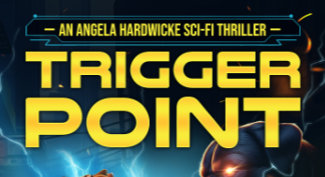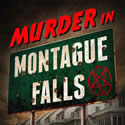This guest post originally appeared on FictionZeal
Guest Post by Russ Colchamiro
Russ’ Top 10 Writing Tips for Aspiring Authors
Throughout my travels as an author, young and aspiring writers often ask me how they themselves can become a great writer.
I usually chuckle – inwardly if not outwardly – not because the question is funny, but because it touches on something all authors seek: what’s the secret formula for success? And the answer is … it’s different for every author.
 I’m not so sure I can turn you into a great writer, but for those who are willing to indulge me, here are my top 10 suggestions for improving as a writer:
I’m not so sure I can turn you into a great writer, but for those who are willing to indulge me, here are my top 10 suggestions for improving as a writer:
- Write every day. The more you write, the better you’ll get.
- Don’t try to be perfect. As my hero Zig Ziglar says, ‘you don’t have to be great to start, but you have to start to be great.’ In other words, if you never write the first word no other words will follow up. Just get going and trust that it will come.
- There’s a big and important distinction between writing and editing. To my eyes, the writing phase is the content dump. Just get your thoughts down, even if they are sloppy and convoluted. The editing phase is where the surgical crafting and precision comes in.
- Be your own writer. I find so many aspiring authors who want to write like Stephen King or Hemingway or whomever else they love and admire, or whatever’s trending at the time. Having author heroes is great. But you’re not them. You’re you. Write in the style that you find most comfortable.
- Don’t fear the blues. Discouragement is natural. Fight through it. Every writer, regardless of age or gender, has at one point or another felt like giving up. Don’t. If you’re stuck or discouraged, take a break. But then get back to it. You need to power through the rough patches to get to the good stuff.
- Quality feedback is key. Some writers prefer writer’s groups, others, like me, prefer just a handful of trusted beta readers for input. Whichever you choose, most important is that you enlist the help of readers who will give you the feedback you most need, but not necessarily what you want to hear. Cheerleaders are important, but if you want to improve your story, and your craft, enlist those will give you both technical and structural feedback that enhances or corrects what isn’t working.
- Celebrate accomplishments. Writing the first word is a big deal. Without word one, there’s no word two. Finishing a short story or a chapter in your novel is a milestone. So is finishing the first draft, the second, and so on, all the way to getting published, and then, hopefully, making sales. You need the emotional boosts of each milestone to give you juice to keep going. I’m not saying you should throw a parade for each little victory, but take some time to enjoy the small, medium, and big moments. You will have earned them all.
- Don’t be afraid to start over. Sometimes the story you’re working on will fall flat. That doesn’t mean the work is done. I’ve had occasion to delete entire chapters, rewrite characters, and even rip out entire sections of a book I’ve written because they just didn’t work, for whatever reason. Starting over is not a failure. It’s a mature acknowledgment that you went of the rails somewhere, and it’s time to course-correct.
- Develop a thick skin, because you will get rejected. A lot. So don’t worry about it. Nobody likes rejection, but it’s part of a writer’s life. Sometimes the rejections are fair, sometimes they’re not. We’ve all been there. Welcome to our world. You are now part of the club.
- Write because you love it. If you plan on publishing a novel, there is simply no way to predict whether it will achieve commercial success, at any level. But you can always control how dedicated you are to your craft. My suggestion is to focus on the work. Write well, write for yourself, bring on great, brutally honest editors who give you the feedback your book actually needs — and then hire a skilled publicist if you can afford one. And if there’s fame and fortune at the end of your journey, all the better.






